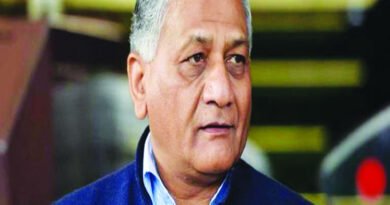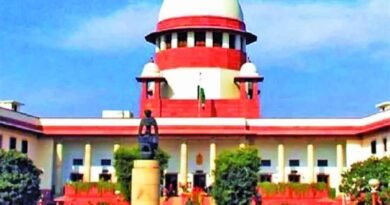Pak PM Shehbaz Sharif’s peace moves with India alluring, but will it work?
Pakistan’s attempt at reaching out to India in friendship is significant as this is for the first time in the last nearly five years, after the Pulwama attacks and India’s airstrikes, that there has been a move for reconciliation
After the recent hot exchanges in international forums, the cloud of mutual suspicion and enmity appears to have dispersed with prospects of peace between the two traditional rivals India and Pakistan once again shining bright.
Before anything more is said on the subject of peace between the two neighbours, the qualifier is that such an attempt is not for the first time. Yet, an interview to an Arabic Gulf channel by Pakistan Prime Minister Shehbaz Sharif has raised hopes once again given his categorical acknowledgment that it is time for peace between the two neighbours.
Sharif, in the interview, said Pakistan had learnt its lessons from the three wars with India and would not want to waste its time and resources by warring with its neighbour.
Hours after the interview was aired, triggering a wide response across the sub-continent and within Pakistan, Sharif’s Pakistan Muslim League put out a series of tweets clarifying that no move would be made before the Modi government reversed its action in abrogating Kashmir’s special status under Article 370 of the Indian Constitution.
But Pakistan’s attempt at reaching out to India in friendship is significant as this is for the first time in the last nearly five years, after the Pulwama attacks and the Balakot airstrike, that there has been a move for reconciliation.
Whether the Narendra Modi government in Delhi takes the cue and attempts to explore ways to use the opening to reduce tensions between the two will depend on whether such a move will help it politically. With India helming the G20, a positive response from Delhi could go some way in validating its leadership and as an important global player.
Economic crisis behind move?
The possible thaw in ties between the two countries goes against the grain, especially in the context of the recent bitter exchange that took the relationship to a new low. External Affairs Minister S Jaishankar told the Australian media and at the United Nations Security Council that the “epicentre of terrorism” was close to India (without referring by name to Pakistan) and that it had hosted the late al-Qaeda chief Osama bin Laden.
Following this, his Pakistan counterpart Bilawal Bhutto termed Modi “butcher of Gujarat” at a UN briefing, causing severe consternation in the Indian camp.
Weeks after such an exchange, the unexpected shift in the tenor and mood between the two feuding neighbours has sparked much speculation over the reasons that may have caused such a shift. One possibility is the severe economic crisis within Pakistan, with reports pointing out large-scale public anger against the government for fuel shortage and scarcity of essential commodities.
Sharif has not only made friendly overtures but also followed that up with asking the United Arab Emirates (UAE) to mediate between his country and India to resolve the tensions and normalise relationship.
Conditions for peace
However, if one expected some concrete moves following the prime minister’s overtures, the ruling PML (N) has followed up with conditions for the peace moves to go through. The conditions fundamentally pertain to Kashmir and the abrogation of Article 370 by the Modi government in 2019. Pakistan terms the move illegal as, according to it, Kashmir is a disputed territory and India cannot change the status quo.
This to some extent has undermined what Sharif himself has tried to attempt. But, given the multi-layered power division in Pakistani politics, this is not surprising. In the past, whenever attempts were made by the political dispensations in the two countries to strike peace, they have always met with resistance in the form of militant action across the border in Kashmir or some kind of armed attack targeting India and its interests.
The Lahore peace declaration when Shehbaz’s brother Nawaz Sharif was the prime minister at the turn of the millennium and India was led by prime minister Atal Behari Vajpayee, followed by the peace talks when Pervez Musharraf was Pakistan president and later when Manmohan Singh was the prime minister — all these moves eventually came to nought.
Even the present Prime Minister Narendra Modi attempted some kind of reconciliation soon after coming to power in 2014 when Nawaz Sharif was in power in Pakistan. He made an unscheduled stop in Pakistan to wish Sharif on his birthday, raising hopes of a new relationship between the two nations. Even that did not result in anything substantial.
Ironically, in the aftermath of the Modi-Sharif bonhomie, the relationship between the two sharply declined after terrorist attacks on India’s Uri and Pathankot army bases followed by the Pulwama attack. India retaliated through air strikes on Pakistan and since then, for the last four years, ties have been frozen, for all purposes.
Though large sections of people in India and Pakistan may favour peace over tension and war, the track record has been grim. Despite all the pessimistic past, that Sharif has thought it fit to again resurrect peace indicates there is more than what one can see. It could be the result of Track-2 diplomacy or a possible deal that is calculated to benefit both Sharif and Modi politically. The next few weeks should see the possibility being played out in public view.
Source: thefederal.com




